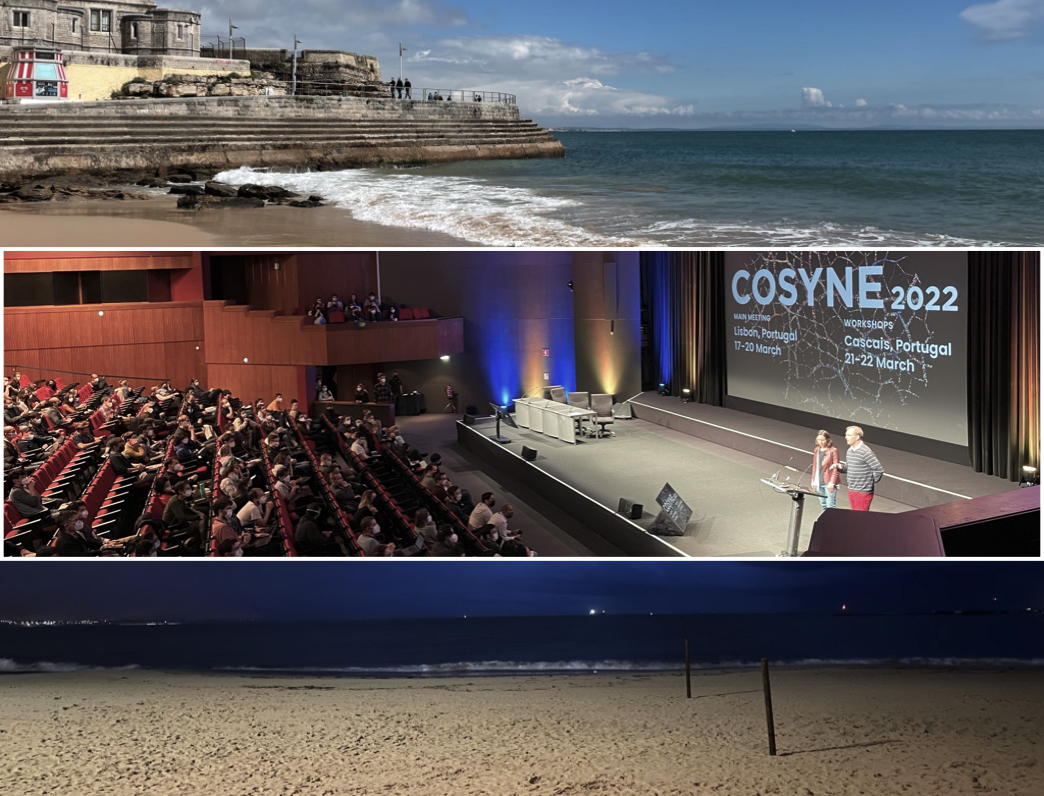I’ve been having some trouble writing recently. More accurately, I’ve been having trouble finishing writing. I have a handful of blog drafts that are about 80% done, as well as some actual work writing, but I’ve been sitting on them indefinitely, and I really, really want to get them posted. I know exactly why this is happening: I’m sitting on them because I think they’re not yet perfect, and I’ll need just one more session to make them perfect. Anyone who’s ever written anything without a deadline knows that that is a stone cold lie. Nothing will ever be perfect, and as a result, they will never see the light of day.
Fortunately, I have some ideas for how to remedy this for myself. 3 years ago, I challenged myself to post something on the blog every week for a year. I failed, ending up with only half that total. But it had the intended side effect of producing some pieces that I did like, on time.
So, I decided to take-up the challenge again: in 2020, I’m once again aiming to post something every single week by Sunday. I was going to write out the details of why and how I was going to do this here, but I was smart enough to go back and read what I wrote in 2017, and it’s literally word for word what I had in my head. Go read that first post from 2017 if you’re interested. For this post, I will talk a bit about what I thought worked, and what I plan to change for this iteration of the challenge in 2020.
(I guess this means I’ve reached the age that I’m stuck making and failing at the same New Year resolution over and over again. Am I an adult now?)
Pressure of Producing and the 80/20 Rule
I’m sure you’ve all heard the saying: the best way to carry through with a task or resolution is to tell everybody that you’re doing it. Nothing motivates like the possibility of public shame. Declaring it is the easy part, carrying through with it isn’t even that difficult. The hard part is, as always, to balance all my commitments and not spend 10 hours a week on writing random blog posts in the midst of my final PhD sprint.
The best of making sure that happens is still to adhere to the 80/20 rule: take 20% of the time to get 80% of the task done, and forget about the last 20% to make it perfect, because, 1) the quality of my writing here literally has no real consequence other than for my own ego, and 2) that 20% is a lie. My theory is that the first 80% of the work comes from muscle memory. In the context of writing, that means you sit down for half an hour and just word vomit. One way to produce a more polished product, obviously, is to dip into the “20%” as much as you can on the thing you’re creating, be it a piece of writing, pottery, or shooting free-throws. My hypothesis is that another way to improve your final product is to ship the thing 80% done (with minor editing to make it legible at least), spend a little time reflecting on what worked/didn’t work the day after, and move on. Over time, my guess is that the sheer repetition will make my writing better, or at least train me to write at about the same quality, but faster.
Another way to think about this is that if there isn’t more I wanted to do by the time I need to post it, then I have spent too long on it. “More” could mean wanting to squeeze in a few more ideas, editing more to make the transitions smoother, or polishing individual sentences to make them more pleasing. It’s as much of an exercise on training my mindset of letting go, as it is on writing.
Process Improvements
What will be a little different from 2017 is how the pieces will get written. In the last challenge, I gave myself 2 hours, with a 30-60-30 min split of research, writing, and edit. This didn’t always pan out, and usually took longer than I had planned, but having a rough timeline helps.
For reasons unrelated to technical writing, I started to regularly keep a daily(ish) notebook since 2018. I guess you can call it a journal: sometimes it’s reflecting on something that happened in the day, other times jotting down ideas about science, or just little observations in life I find interesting. Currently, I have at least 2 entries a week. This means that by the Sunday, unless I have a particular itch to scratch, I can more or less just transcribe what I’ve written during the week, maybe add some details and/or supporting evidence for whatever thought I had, make a pretty figure if I have to, and call it a day.
Side note: I would consider this change a “process improvement”, and I think it works just as well for research projects (in fields where that’s possible): do a small amount of work or writing regularly, be it pursuing an analysis idea, or fleshing out an argument, or compiling observations from a handful of papers. It’s much easier to collect and organize separate pieces of work to create a bigger thing, than to sit down and try to complete an elusive large project in one go. This works at all scales: small snippets of writing come together to make a blog, and a handful of blog pieces can be compiled into an anthology. I’m fully intending to include some of my more rant-y and opinionated blog pieces in my thesis as introduction and conclusion.
Giving the People What They Want
One other thing I want to focus on this year is to widen the range of topics that I’m writing about. The 5 pieces I wrote last year have all been about neuroscience, be it about my work, conference thoughts, or PhD-related topics. That makes total sense as I head into the final leg of my PhD, and there’s nothing inherently wrong with that. But what I’m dissatisfied about is that since I know I’m writing about a more specific topic in neuroscience, the entry-level background knowledge for a reader is implicitly higher, because I simply can’t summarize an entire field in lay-person terms that would enable them to fully understand the rest of the piece.
Similarly, the commentary I provide in those pieces is meant for someone who works in or near neuroscience, such that they can get something insightful from the post. All that is good, but I feel that I’m slowly forgetting how to communicate effectively to a non-expert audience, specifically because I haven’t had to consider their point of view. My commissioned piece for SCGB is a good example of that shift in baseline: I thought really hard about a metaphor to open up the subject, but the baseline reader is assumed to be a neuroscientist, or at least a biologist, and not someone completely unrelated. This means the implications for a piece of work I’m highlighting is completely lost and irrelevant to 99% of the people on this planet, and I don’t like that. I also just want to write more about random things, to be honest. There’s more to life than neuroscience.
Therefore, I’m making a point to write (a little) more about everyday things. The science content will still be there, because that’s what I spend 80% of my day doing, but hopefully that will also happen with many points of entry. I will still share these posts as I publish them, so I apologize in advance if you’re on Twitter expecting quality science writing from me, and instead getting some random meandering about sunsets and cycles. I did like the fact that those 2017 posts were almost always a <10-minute read. So if anything, I hope this will at least be a short piece of candid entertainment for your week.
As a final note, since I’m out here laying out my resolutions, I’m also resolving to read at least 20 books this year. This is going to be much more difficult, since I can always half-ass a piece of writing, but the book is not going to get shorter. But hopefully this will be a complementary goal, since I’ve always wanted to keep a record of my reading list.




